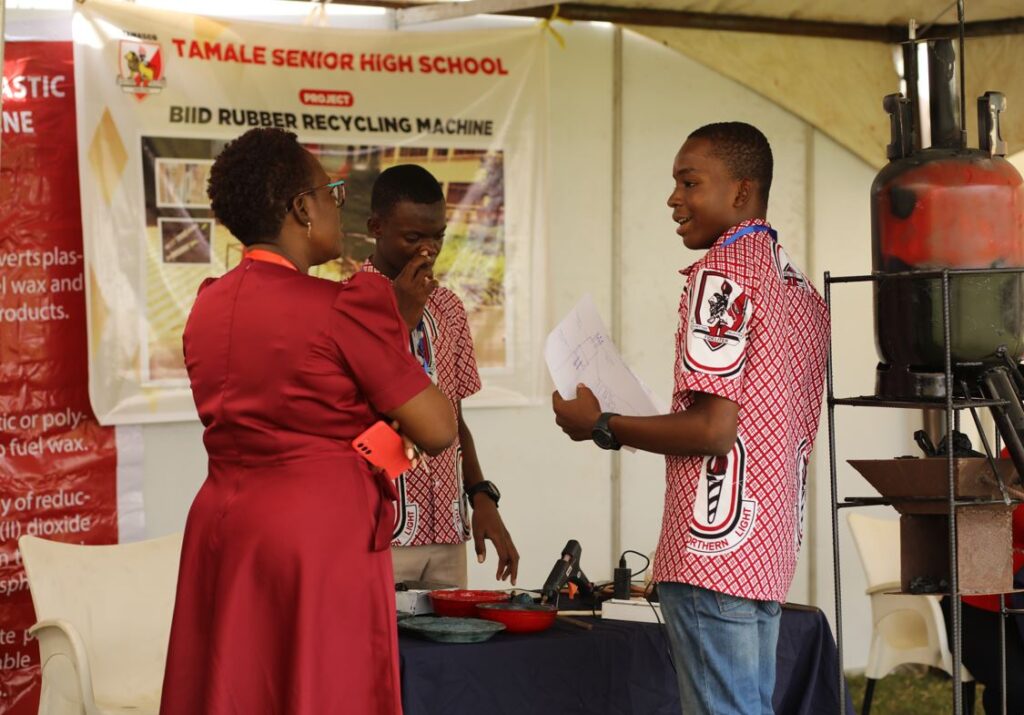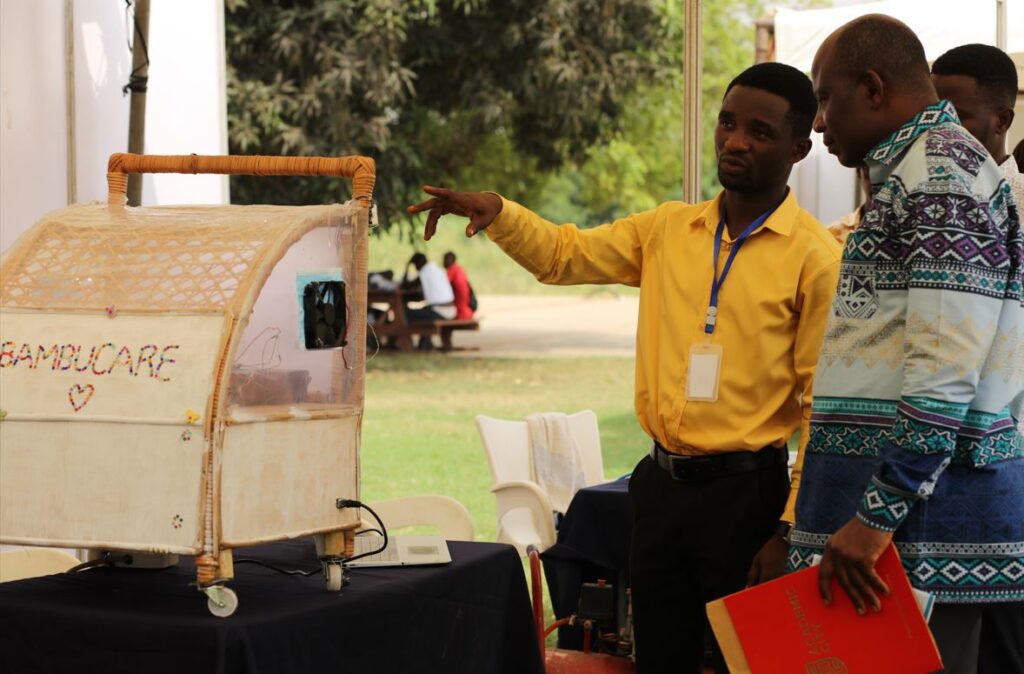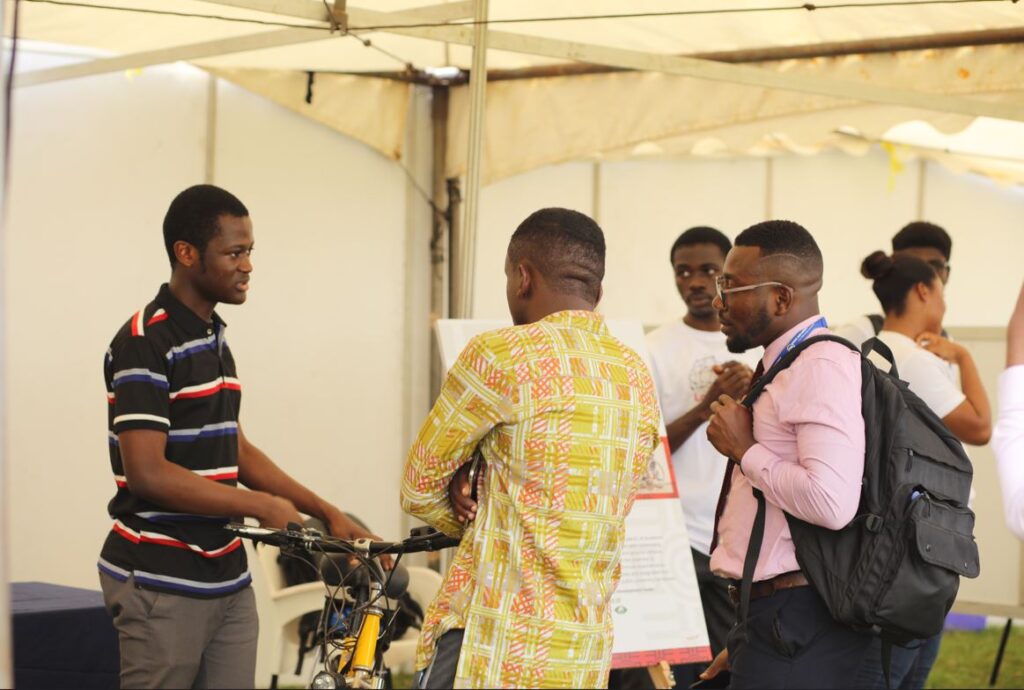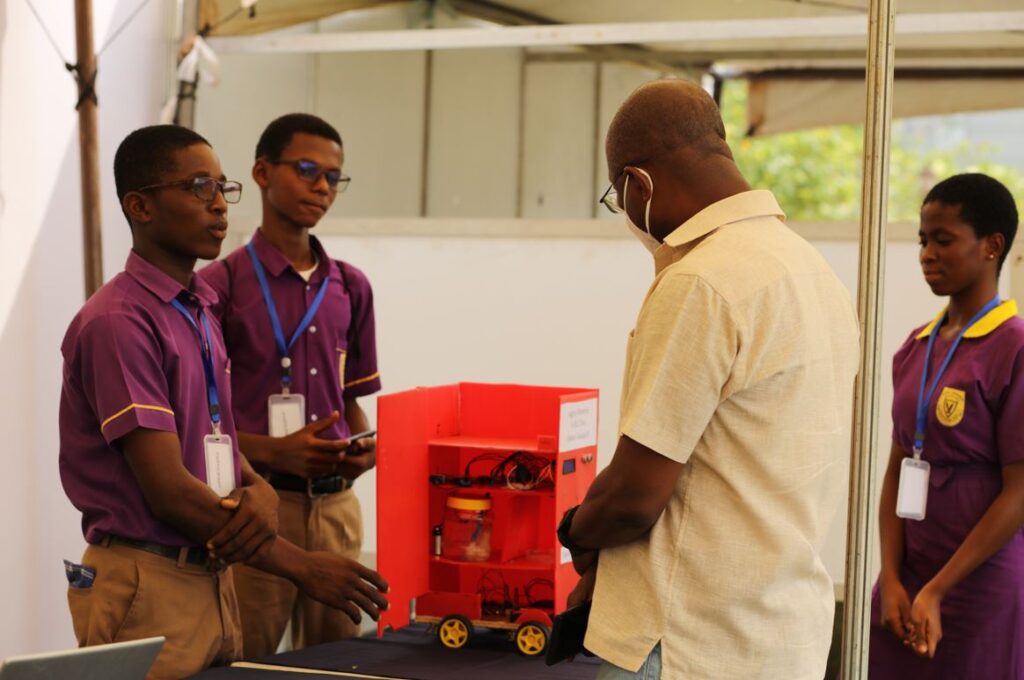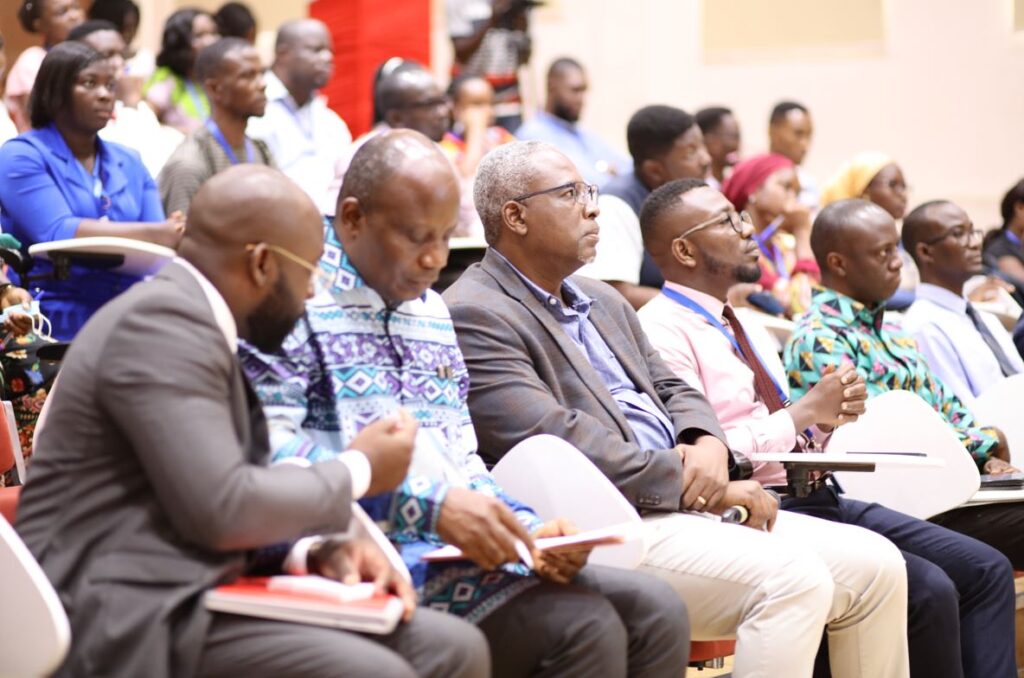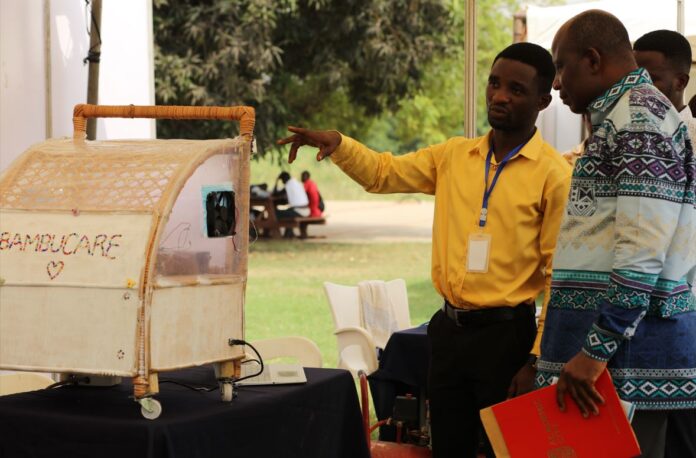
Students from the tertiary and senior high schools surprised everyone with fascinating innovations at this year’s Locovent Medical Technology Fair at Academic City University College. Among other products and services for the health industry, the project “Local Ventilators for Africa”, which the Academic City University Colleague launched together with the Deutsche Gesellschaft für Internationale Zusammenarbeit (GIZ) GmbH, was presented.
During the 2020 Covid 19 pandemic, it became apparent that Ghana did not have enough ventilators to save lives. This prompted Prof Fred McBagonluri, a world-renowned engineer, inventor, academic, researcher and educator who is also the founding president of Academic City University College and co-founder of iSTEAM, to collaborate with GIZ’s develoPPP project. The result of the collaboration was the development of a low-cost ventilator for Ghana and the whole of Africa, using commercially available and locally available materials for its construction. Prof. Fred McBagonluri, convinced of the success of the invention, says: “The local ventilator is currently undergoing clinical trials in Korle Bu. Once these are successful, the device will be submitted to the FDA for approval to pave the way for mass production.”
Team Lead for develoPPP, Dr. Holger Till recalled why GIZ decided to partner with Academic City University College “we decided during covid-19 to partner with Ghanaian institutions to be better prepared against covid-19 and future pandemic, hence the proposal to develop a local ventilator to assist in solving some of Ghana’s health issues.’
Solar-powered phototherapy device saves lives
The local ventilator was not the only invention at the medical technology fair. There were thirteen exhibitors from both academia and private health service providers with different inventions.
An eight-member team from Goliath Robotics, who graduated in August showcased assistive mobility devices among which was a fully manufactured electric bicycle and would want to start mass production next year. The bicycle is multipurposed. It can be paddled if one wants to exercise or simply steer if one doesn’t want to break a sweat.
Explaining why they developed a solar-powered phototherapy device, a biomedical engineering student from All Nations University, Eric Coleman, said “what we have in our hospitals are powered by electricity and shuts down when there is power outage. That is dangerous for our jaundiced children and a huge limitation, hence our invention”.
Another creative invention was a health assistant robot that boosts communication between health personnel and patients by students from the Aggrey Memorial A.M.E Zion. They hope to improve on the version II which can deliver medication, food, and other necessities to patients with communicable diseases, check patient temperature remotely and also sanitise hands to a version III where visually impaired can also benefit.
Prof. Fred McBagonluri called on universities in Ghana to establish an advisory board that would oversee and ensure student invented medical technology ends up on the Ghanaian market for use. He noted that “I think we need to be a little proactive with the projects that our students have worked on and are lying on the shelves. Can we identify institutions in Ghana that will need them and bring them in?’
The Locovent4Africa project is partnered by Academic City and iSTEAM and implemented by GIZ on behalf of the German Ministry of Economic Cooperation and Development (BMZ) and funded through develoPPP.
PHOTOS
